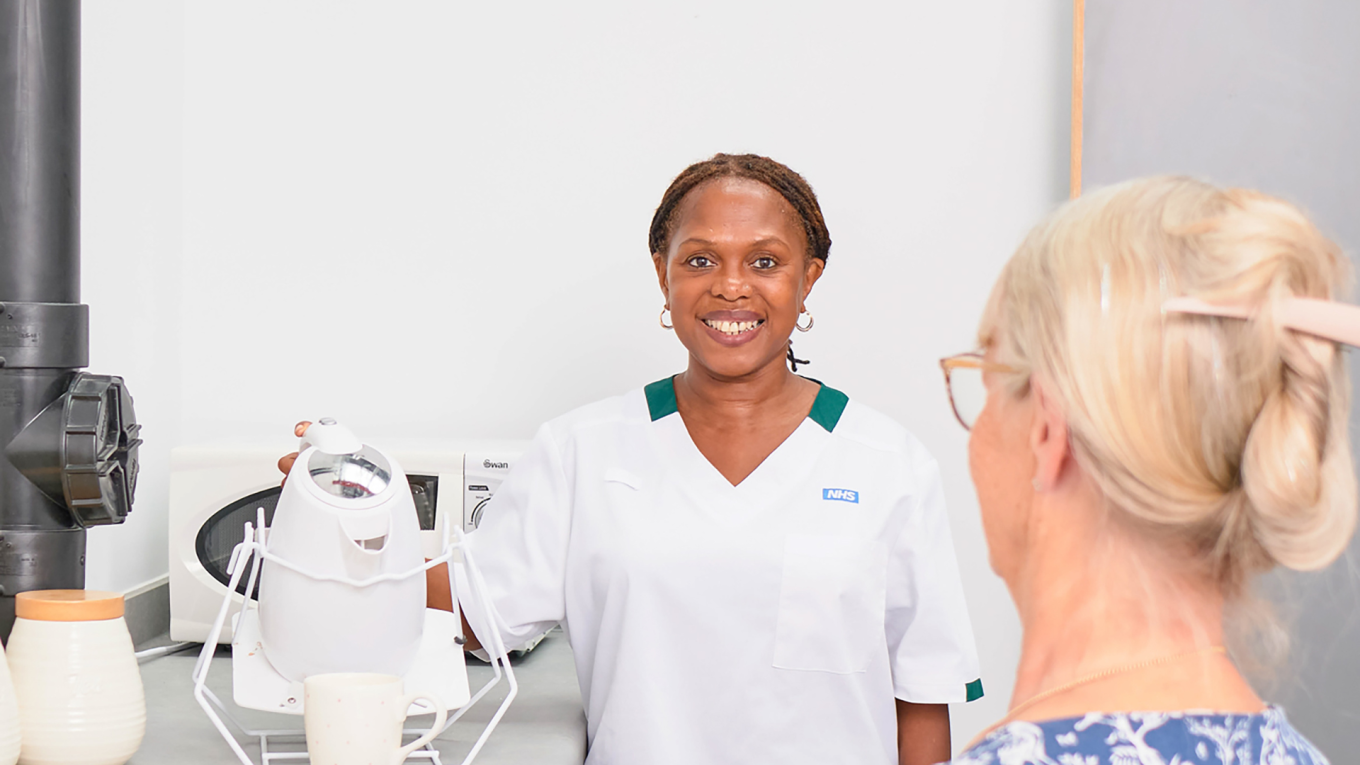
Occupational therapist
Occupational therapists support individuals of all ages who face challenges with everyday tasks due to illness, disability, injury, ageing, or long-term conditions, enabling them to maintain or regain quality of life.

On this page
Introduction to the role
Accidents, illness, disability, mental health issues and ageing can make everyday activities more difficult – from getting dressed in the morning to taking part in hobbies or work. As an occupational therapist, you’ll work with people of all ages to help them overcome these challenges so they can live as independently and fully as possible. This could mean teaching new ways of doing things or adapting to environments to make daily life easier and safer.
About the role
What does an occupational therapist do?
As an occupational therapist, your work will be varied and creative, focusing on finding practical solutions to improve a person’s quality of life. You might support someone adapting to life after major surgery, help people with learning disabilities or mental health conditions manage daily routines, or enable elderly patients to remain in their homes by arranging adaptations like level-access showers or stair lifts. Solutions could include advising on different ways to approach a task, introducing specialist equipment or assistive technology, adapting living or working spaces, or developing strategies to help patients achieve their goals.
You’ll work not only with individuals and their families but also with groups, collaborating closely with other professionals in hospitals, clinics, charities, prisons, or social services teams.
What are the pay and conditions like?
If you work as an occupational therapist in the NHS, you’ll usually have a 37.5 hour working week, which may include some evenings or weekends.
Most occupational therapists start at band 5 on the Agenda for Change pay scale. You’ll also receive at least 27 days of annual leave plus bank holidays, along with access to the NHS pension scheme and a range of staff discounts.
Where occupational therapy can take you
Once you have qualified as an occupational therapist, a wide range of career opportunities may become available.
You could:
- specialise in areas such as elderly care, paediatrics, mental health or rehabilitation
- move into research or education, sharing your expertise with students or contributing to evidence-based practice
- work overseas in healthcare systems around the world progress into more specialist or senior posts, taking on greater clinical responsibility and advanced practice
- move into management roles, with responsibility for leading teams, managing budgets and developing services
You’ll have regular Continuing Professional Development (CPD) check-ins to discuss your career aspirations, and joining the Royal College of Occupational Therapists will give you access to professional indemnity cover, trade union membership, and opportunities to update your skills through courses, conferences and networking events.
Life as an occupational therapist
Life as an occupational therapist
Person specification
Is being an occupational therapist right for you?
Being an occupational therapist means helping people of all ages adapt to challenges caused by illness, injury, disability, or ageing. You’ll need to be a natural ‘people person’ who can make anyone feel at ease quickly and have the creativity to find practical solutions to a wide variety of problems. The role requires patience balanced with enthusiasm, strong teamwork skills, and the ability to think on your feet.
Ask yourself:
- Can I connect easily with people from all walks of life and quickly build trust?
- Am I able to think creatively to solve practical challenges?
- Do I have the patience and positivity to support people through potentially life-changing situations?
Find a course with UCAS
Want to explore the next step in traditional degree routes into the NHS? Explore courses related to occupational therapy with UCAS today.
Entry requirements and training
To become an occupational therapist, you’ll need to complete a degree in occupational therapy, which usually takes three years full time or up to six years part time. If you already hold a relevant undergraduate degree, you could study for a master's in occupational therapy, typically taking one to two years. Another route is to apply for a degree apprenticeship in occupational therapy. Once you’ve successfully completed your course, you must register with the Health and Care Professions Council (HCPC) before you can begin practising.
Most universities ask for five GCSEs at grades 9-4 (A-C), including English language, maths and science, along with three A levels or equivalent. Equivalent qualifications may also be accepted, such as a BTEC, HND or HNC in biological science, a relevant T level, NVQ, or a science-based access course, as well as equivalent Scottish or Irish qualifications.
Each university sets its own entry criteria, so it’s important to check with them directly. When applying, you’ll be expected to demonstrate how you believe the NHS values apply in your everyday life and work.
Find out more about routes into the NHS with UCAS.
Work experience
Applying for a course or apprenticeship as an occupational therapist is going to be competitive. If you're seriously considering it, it is a great idea to try and gain some prior work experience to strengthen your application. Visit NHS England to find out more about gaining work experience for careers in the NHS.
Financial help at university
You could receive at least £5,000 a year to help fund your studies while at university in England. Your personal circumstances and the course you choose may mean you could receive more. And the good news? You'll never have to pay it back.
Explore NHS Careers
There are over 350 different NHS careers and everyone makes a difference every day. Whether you’re still in education or thinking about changing careers, you'll get the information you need.